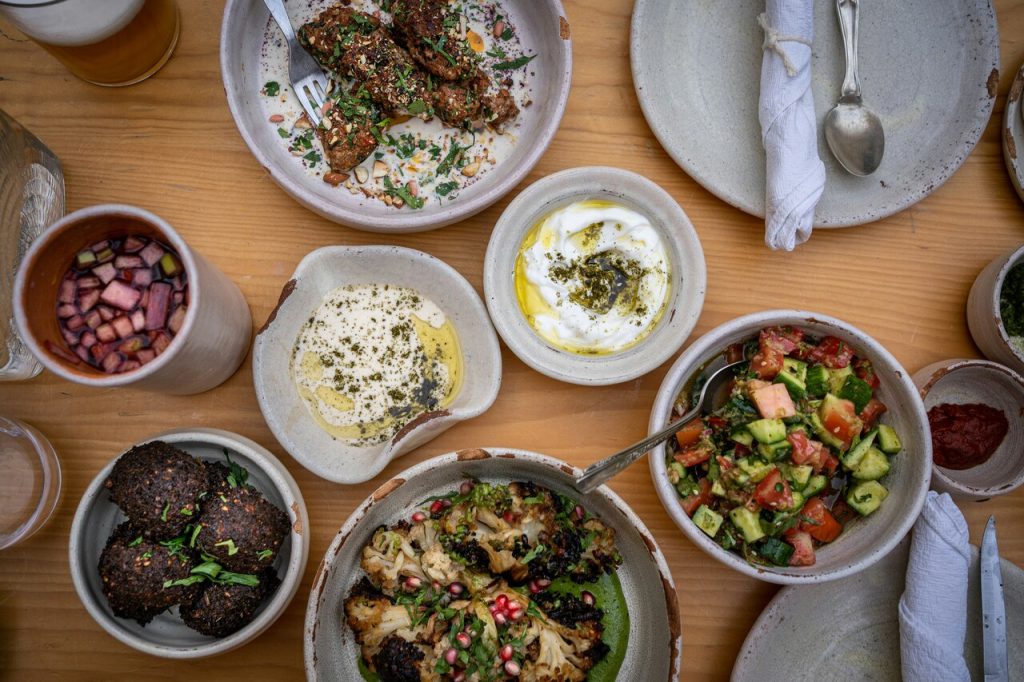The award-winning Mediterranean diet has done it again, securing the 2025 “best of the best” accolade from U.S. News & World Report. This recognition highlights what nutrition professionals worldwide have long known: the Mediterranean diet’s focus on fresh fruits, vegetables, grains, olive oil, and lean proteins is an ideal template for health and balance.
Yet, despite its celebrated status, the Mediterranean diet finds itself at odds with Nutri-Score, a front-of-pack (FOP) labeling system that continues to be evoked during discussions of FOP harmonization in the Brussels bubble. Intended to simplify nutritional information for consumers, Nutri-Score, unfortunately, misrepresents the health benefits of traditional foods, sparking merited backlash from producers and public health advocates alike.
Nutri-Score, introduced in France in 2017, uses a color-coded scale from “A” (green) to “E” (red) to grade foods based on their nutritional content. While it claims to make healthy choices easier, its algorithm frequently penalizes nutrient-rich traditional foods central to Europe’s culinary heritage.
Olive oil, the cornerstone of the Mediterranean diet, is a prime example. Celebrated for its high levels of monounsaturated fats and antioxidants, it has been repeatedly linked to improved heart health and longevity. Yet Nutri-Score initially assigned olive oil a “D” due to its fat content. Although the score was later adjusted to a “B,” this rating still fails to capture the oil’s unmatched nutritional value, especially in the context of balanced diets.
The system’s flaws extend to other staples of European gastronomy, such as Roquefort cheese. As the first French product to receive Appellation d’Origine Protégée (AOP) status, Roquefort is a symbol of tradition and artisanal craftsmanship. Yet Nutri-Score’s algorithm assigns it a low grade simply because it contains fat and salt—two components inherent to its natural production process.
Jérôme Faramond, President of the Confederation of Roquefort, expressed frustration over the label’s reductive nature: “Roquefort is made from raw milk, a little salt, and penicillium. It’s as natural as it gets, yet it’s branded unhealthy. This system not only misleads consumers but disrespects centuries of tradition.”
The implications of Nutri-Score extend far beyond individual food choices. In countries like Greece, olive oil represents not just a dietary staple but also an economic pillar and cultural emblem. Similarly, in France, products like Roquefort are more than foods—they are symbols of regional identity and rural livelihoods.
By assigning lower grades to these products, Nutri-Score risks damaging their reputations in international markets, where consumers increasingly rely on labels to guide their purchasing decisions. For small-scale producers, this is particularly concerning. Unlike larger companies, they often lack the resources to adapt their marketing strategies or challenge Nutri-Score’s criteria, leaving them at a distinct disadvantage.
Carole Delga, President of the Occitanie region, has been a vocal advocate for excluding AOP and IGP products from Nutri-Score. She argues that applying the label to such foods fails to account for their unique qualities and cultural significance. “Nutri-Score is ill-suited to products under quality labels like Roquefort,” she said.
The controversy surrounding Nutri-Score has been amplified by corporate adoption. In November 2024, Carrefour announced it would display Nutri-Score ratings for all products sold online, regardless of whether suppliers consented to the labeling. Brands unwilling to adopt Nutri-Score risk reduced visibility on Carrefour’s platforms, effectively forcing them to comply.
While Carrefour frames this move as a commitment to transparency, it risks entrenching Nutri-Score’s flaws. For producers of traditional foods, this corporate-driven expansion of the system adds pressure to conform, even as its evaluations misrepresent their products.
European food policy and consumers alike would benefit from moving beyond rigid, uniform labeling systems like Nutri-Score, focusing instead on approaches that honor culinary traditions and empower consumers through knowledge. The Mediterranean diet exemplifies an effective model: it champions moderation, natural ingredients, and sustainable habits without resorting to oversimplified algorithms that are ultimately misleading.
Public health initiatives could place greater emphasis on the unique nutritional value and cultural heritage of traditional foods, encouraging appreciation through targeted campaigns. By incorporating Mediterranean staples into school menus and public meal programs, institutions could introduce younger generations to dietary practices that are both wholesome and rooted in rich food traditions.
The European Centre to Address Child Obesity, recently inaugurated in Athens, offers an example of how cultural awareness and evidence-based education can shape impactful policies. Its alignment with the Mediterranean diet’s principles underscores the potential of thoughtful strategies. Unlike Nutri-Score’s reductive framework, such initiatives respect the complexity of nutrition while fostering trust and understanding among consumers.
Systems like Nutri-Score risk reducing the complexity of nutrition to a formula that undermines both trust and heritage. Europe’s policymakers have a responsibility to champion food policies that celebrate its rich culinary traditions while fostering a nuanced understanding of nutrition. By prioritizing education over algorithms, Europe can protect its diverse food cultures and empower consumers, a solution that truly seems to be the “best of the best”.

Photo by Alexandra Tran on Unsplash


